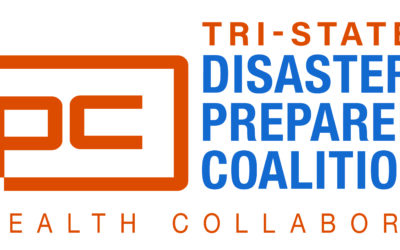FOR IMMEDIATE RELEASE
Area hospital and public health officials are monitoring alarming upper respiratory virus trends. Regional hospitals are currently handling a surge in flu and COVID-19 cases while bracing for more emergency room activity in the coming weeks. As friends and family get together for holiday celebrations, it is important to consider those who are at increased risk for poor outcomes should they get sick. Get up to date with flu and COVID-19 vaccines, stay home if you feel sick, and take preventive measures to minimize the spread of viruses indoors.
Emergency rooms in the area are inundated with patients suffering from upper respiratory illnesses. Flu hospitalizations in an eight-county region have increased by 73% in the last three weeks, while COVID-19 hospitalizations have increased by 74%.
“Most people who get the flu do not need to go the Emergency Department,” says Cincinnati Health Department’s Interim Health Commissioner Dr. Grant Mussman. “If you are mildly ill, it’s better to stay out of the emergency department so that those with more severe symptoms or other emergent issues can be treated faster. Severe symptoms are signs that you may need to go to the emergency department. Those can include difficulty breathing, severe chest pain or muscle pain, severe or persistent vomiting and dehydration, dizziness, confusion, or inability to arouse. Still, anyone with severe symptoms or worsening chronic medical conditions should call their provider for advice or seek further care.”
According to the Centers for Disease Control and Prevention (CDC), influenza activity is considered “very high” in several states across the country, including Ohio.
“We’re seeing a strong, early flu season here in southwest Ohio,” says Hamilton County health commissioner Greg Kesterman. “The same good practices we exhibited through COVID will also work for the flu – get vaccinated, practice good hand hygiene, and stay home when you are ill.”
Our regional hospitals are activating their internal surge plans and adjusting operations accordingly to manage the influx of patients seeking care in the emergency departments and of those who are admitted.
“The hospitals are load balancing across the region, of which they’ve become skilled at accomplishing given their experiences managing COVID surges throughout the past couple of years. We are convening hospital leadership regularly to ensure all patients within our communities have access to timely, quality care,” shares Tiffany Mattingly, Vice President, Clinical Initiatives, The Health Collaborative.
With your help, our community can help prevent the spread of the flu and COVID-19.
Seek COVID-19 and influenza care outside of the emergency department. Mild to moderate flu symptoms can be treated at home. If symptoms get worse, contact your primary care, or community clinic, or visit an urgent care center. People with mild symptoms should avoid the emergency department to safeguard emergency resources for those who are sickest. For flu and COVID tests utilize primary care, urgent care, clinic care, and Test and Protect locations visit testandprotectcincy.com.
Get Vaccinated. Certain people are at increased risk for developing serious complications from the flu and/or COVID-19, such as those living with chronic medical conditions, including asthma, COPD, and other chronic lung diseases, as well as heart disease and diabetes. Getting a vaccine protects you and the people around you. Vaccination is the best way to help protect against severe illness caused by the flu and COVID-19 viruses. The flu shot can be given at the same time as the COVID-19 vaccination and is recommended for anyone 6 months of age and older.
Space is good. Avoid close contact with those who are already sick. Avoid shaking hands and giving hugs during flu season. Stay home if you have symptoms. The CDC advises staying home at least 24 hours after your fever is gone without the use of fever-reducing medicines.
Mind your body. Wash your hands frequently, and avoid touching your eyes, nose, and mouth. These are access points for viruses to enter your body. Cover your nose and/or mouth with your sleeve or a tissue when you cough or sneeze. Wear a mask.
Questions? Contact:
Shannan Schmitt
Senior Director, Communications
sschmitt@healthcollab.org













